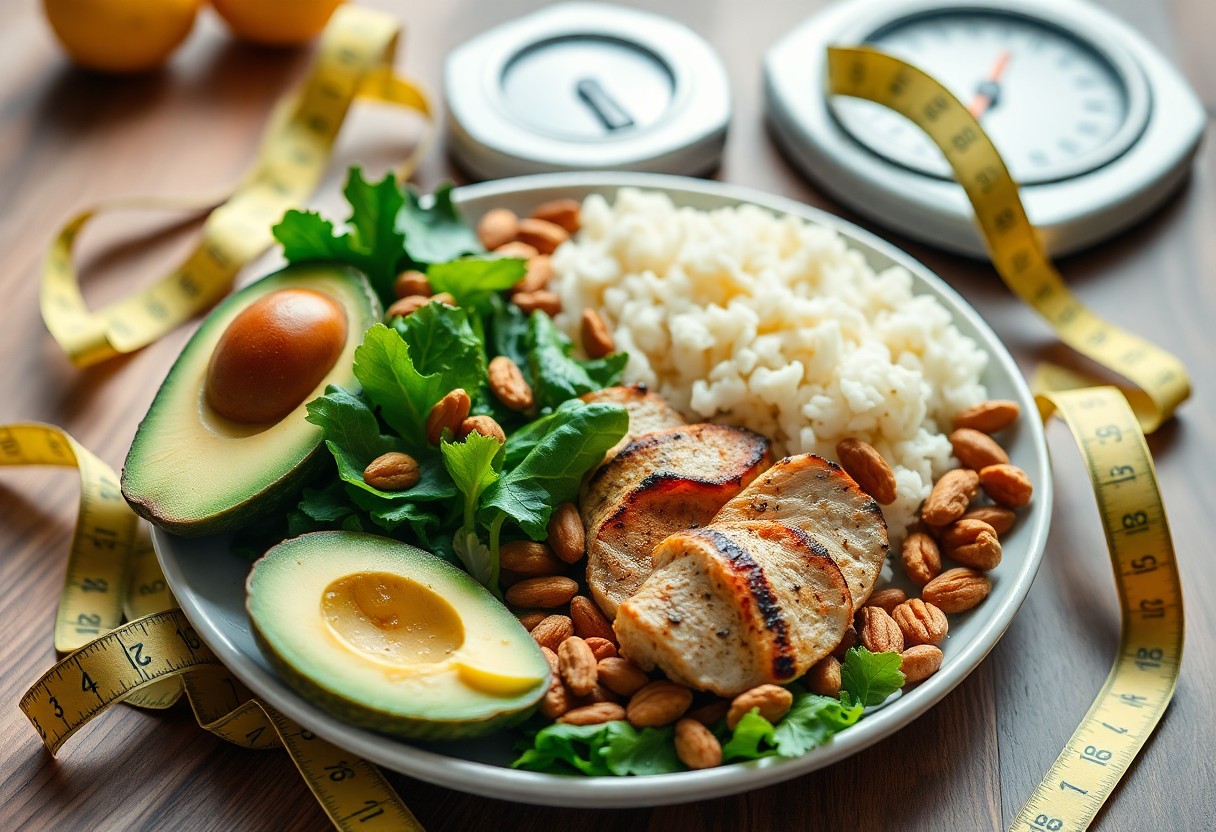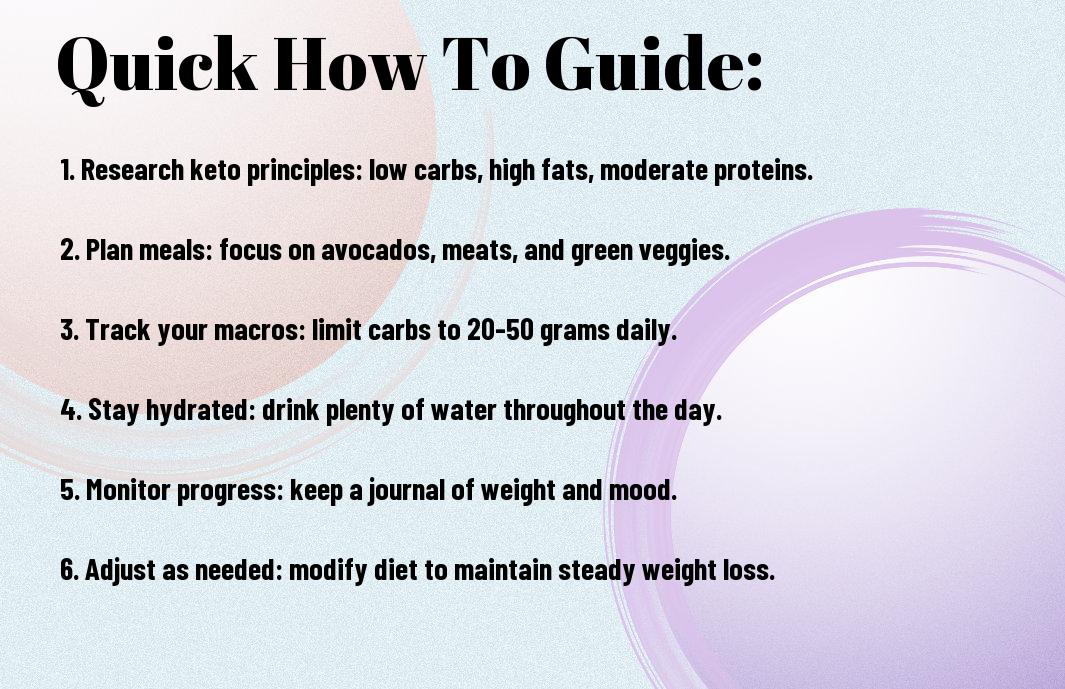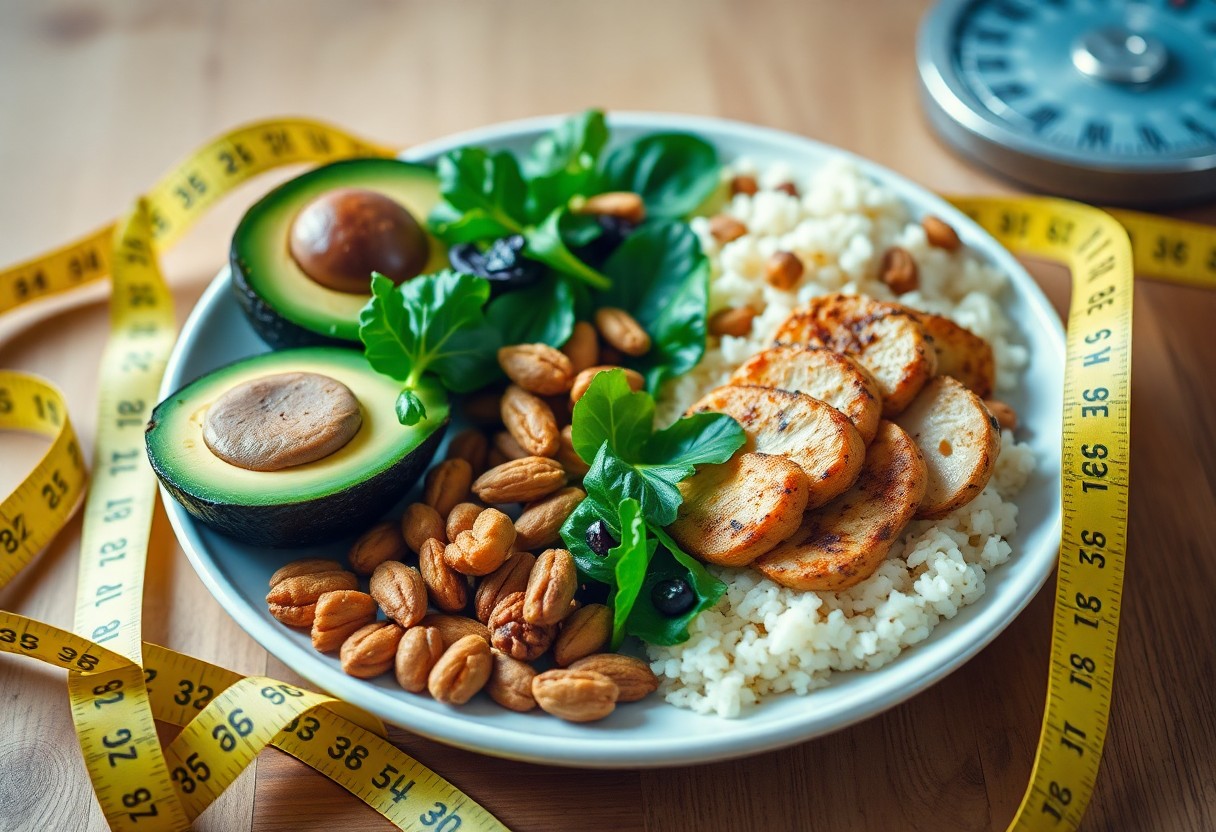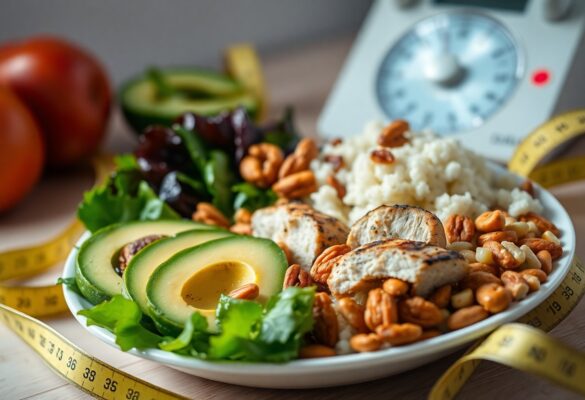Many people struggle with weight loss and often feel overwhelmed by the countless diet options available today. However, the ketogenic diet has emerged as a powerful tool for effective weight management. In this post, you will discover how to harness the principles of the keto diet to promote fat burning, stabilize your energy levels, and ultimately achieve your weight loss goals. With practical tips and insights, you’ll be equipped to navigate this dietary approach successfully and unlock your path to a healthier you.

Key Takeaways:
- Ketosis: Achieving a state of ketosis is crucial for the Keto Diet, where the body burns fat for fuel instead of carbohydrates, promoting effective weight loss.
- Low-Carb Intake: The diet emphasizes significantly reducing carbohydrate consumption, typically to under 50 grams per day, which helps in decreasing insulin levels and encourages fat burning.
- Healthy Fats: Incorporating healthy fats like avocados, nuts, and olive oil is key, as they provide the necessary energy and nutrients while keeping you satisfied and less likely to overeat.

Understanding the Keto Diet
Your journey into weight loss through the Keto diet starts with a deep understanding of its core principles. At its essence, the Keto diet emphasizes a low carbohydrate and high-fat intake, prompting your body to enter a metabolic state known as ketosis. This shift encourages your body to burn fat for energy instead of relying on carbohydrates, leading to effective weight loss and improved mental clarity.
What is the Keto Diet?
With the Keto diet, you drastically reduce your carbohydrate intake and increase the consumption of fats. This dietary shift forces your body to enter ketosis, where it begins to burn fat for energy instead of glucose derived from carbs. The goal is to reprogram your metabolism, leading to efficient fat burning and sustainable weight loss.
Key Principles of Ketosis
You will engage in a unique state called ketosis, where your body shifts its primary energy source from carbohydrates to fats. This transition requires maintaining a daily carb intake of around 20-50 grams while increasing fats to comprise about 70-75% of your overall diet, alongside moderate protein intake. By following these guidelines, your body will produce ketones from fat, which serves as an alternative fuel source, optimizing fat burning and accelerating weight loss.
Keto emphasizes the importance of dietary fat, not just as a source of energy but to replace the calories you would typically derive from carbs. When you lower your carb intake, insulin levels decrease, promoting fat breakdown and mobilization. This leads to a continual state of fat utilization, enabling your body to effectively shed excess weight and enhance energy levels. By focusing on specific macro ratios, you can take advantage of the body’s natural processes, making the keto diet a powerful tool for weight loss.
How to Start the Keto Diet
While starting the Keto diet may seem daunting, you can simplify the process by having a clear plan in place. Begin by educating yourself about the core principles of the diet, focusing on high-fat, low-carbohydrate foods. Set realistic goals for your weight loss journey, and gradually adjust your meal choices to incorporate more healthy fats while reducing carbohydrate intake. Staying patient and consistent will lead you to the results you desire.
Creating a Keto Meal Plan
You can effectively set yourself up for success by creating a personalized Keto meal plan. Begin by listing your favorite high-fat foods like avocados, nuts, and fatty fish, then combine them with low-carb vegetables. Ensure your meals are well-balanced and meet your daily macronutrient goals, keeping your carb intake below 20-50 grams per day. Meal prepping can also streamline your cooking process, making it easier for you to stick to the diet.
Common Mistakes to Avoid
Even if you are committed to the Keto diet, there are a few common mistakes you should sidestep for optimal success.
Understanding these pitfalls can save you valuable time and effort in your weight loss journey. Many people mistakenly focus solely on fats without paying attention to protein intake, which can hinder progress. Additionally, neglecting to track your macronutrients might lead to unintentional carb overconsumption. Another error to avoid is not staying hydrated, as dehydration can mimic carb withdrawal symptoms, making the diet feel more challenging. Lastly, be wary of hidden carbs in processed foods, which can throw you off track. By addressing these issues, you can enhance your experience on the Keto diet significantly.

Tips for Successful Weight Loss on Keto
Once again, achieving your weight loss goals on the keto diet involves strategic planning and lifestyle changes. Here are some effective tips to keep you on track:
- Plan your meals ahead of time.
- Track your macros diligently.
- Incorporate healthy fats.
- Choose low-carb, nutrient-dense foods.
- Practice portion control.
This will help maximize your success and keep you motivated throughout your journey.
Staying Hydrated
There’s no doubt that staying hydrated is vital for your overall wellness while on the keto diet. Since carbohydrate intake affects water retention, you may experience increased fluid loss. Aim to drink plenty of water throughout the day to help maintain your body’s optimal performance and support weight loss.
Incorporating Exercise
Keto often leads to increased energy levels and improved fat burning, making it an ideal companion for your exercise routine. By incorporating consistent physical activity, you further enhance your weight loss results and overall health.
Staying active not only boosts your metabolism but also helps preserve muscle mass on the keto diet. Aim for a blend of cardio and strength training exercises to enhance fat loss while building lean muscle. Even short bursts of activity or daily walks can make a significant difference in your progress and keep you motivated on your journey.
Factors Influencing Weight Loss on Keto
Unlike other diets, the ketogenic regimen’s effectiveness can vary widely among individuals due to several key factors:
- Individual metabolism
- Adherence to the diet
- Physical activity levels
- Your specific health conditions
Knowing how these elements impact your weight-loss journey can enhance your experience with the keto lifestyle.
Individual Metabolism
Some people have a naturally faster metabolism than others, which means they burn calories more efficiently. This variation can significantly affect the rate at which you lose weight on a ketogenic diet. Factors such as age, sex, and genetic predisposition can influence your metabolic rate, making it necessary to understand your body’s unique energy expenditure.
Adherence to the Diet
With any diet, your ability to stick to the plan greatly affects your weight loss success. Adhering to the keto diet involves more than just reducing carbs; it requires a commitment to understanding food choices, meal prepping, and avoiding temptations.
Factors that can affect your adherence include your cooking skills, social situations, and emotional triggers related to food. Creating a supportive environment and developing effective coping strategies can play a significant role in helping you stay on track with your dietary goals. Maintaining consistency is key for optimal results while following the keto lifestyle.
Monitoring Your Progress
To effectively lose weight on the keto diet, monitoring your progress is vital. Keeping track of your changes will help you stay motivated and adjust your strategy as needed. Regular check-ins on your weight, measurements, and ketone levels can provide valuable insights into how well your body is adapting to this low-carb lifestyle.
Tracking Ketosis Levels
Tracking your ketosis levels is vital to ensure you remain in a fat-burning state. Utilizing pee strips or a blood ketone meter can give you an accurate measure of your ketone bodies, indicating how effectively your body is utilizing fat for energy. Consistently monitoring these levels will help you assess if your diet is working as intended.
Adjusting Your Diet as Needed
For optimal results, adjusting your diet as needed based on your progress is important. As you track your weight and ketosis levels, you may find that certain foods or macronutrient ratios work better for you than others. Stay flexible and be open to modifications that support your weight loss journey.
Progress is not always linear with the keto diet, and being prepared to tweak your approach can make a significant difference. If you notice your weight loss has plateaued or your ketosis levels drop, consider adjusting your carb intake, increasing healthy fats, or incorporating different protein sources. Listening to your body and understanding its responses will enhance your chances of success, ensuring your keto journey remains effective and sustainable.
Overcoming Challenges on the Keto Diet
Not every day will feel like a walk in the park on the keto diet. You may encounter numerous challenges, from cravings to fatigue as your body adapts to a new way of fueling itself. Acknowledging these hurdles and being prepared to tackle them is vital for achieving your weight loss goals while maintaining your commitment to keto.
Dealing with Keto Flu
Now that you’ve transitioned to the keto diet, you might experience what is commonly known as “keto flu.” This temporary condition can manifest through symptoms like headaches, fatigue, and irritability as your body adjusts to burning fat for fuel instead of carbohydrates. By staying hydrated, increasing your electrolyte intake, and ensuring your meals are well-balanced, you can ease these symptoms and enjoy a smoother adaptation process.
Managing Cravings
Diet changes can trigger intense cravings, especially when you cut out carbs. It’s vital to recognize that these cravings are normal and can be managed effectively. You can curtail your cravings by incorporating satisfying, high-fat foods into your meals, making sure your meals are nutrient-dense, and practicing mindful eating techniques that help you understand your body’s hunger signals.
With the right strategies in place, you can conquer cravings while on your keto journey. Focus on including healthy fats, such as avocados, nuts, and olive oil, in your diet to help you feel full and satisfied. Additionally, consider keeping keto-friendly snacks readily available to prevent reach for high-carb temptations. By staying mindful about your food choices and engaging in distractions when cravings hit, you’ll find it easier to stick to your keto plan without feeling deprived.
Conclusion
Hence, by adopting the strategies outlined in ‘Unlocking The Secrets – How To Lose Weight Effectively With The Keto Diet’, you can achieve sustainable weight loss and enhanced well-being. Embracing a low-carb, high-fat lifestyle not only transforms your body but also sharpens your mental clarity and energy levels. It’s important to remain consistent and monitor your progress, allowing you to adjust your approach as needed. With perseverance and the right knowledge, you can unlock the full potential of the keto diet in your weight loss journey.
FAQ
Q: What is the basic principle behind the Keto diet for weight loss?
A: The Keto diet focuses on drastically reducing carbohydrate intake while increasing fats in your diet. This shift puts your body into a metabolic state called ketosis, where it becomes highly efficient at burning fat for energy instead of glucose. By limiting carbohydrates, insulin levels decrease, which helps to facilitate fat storage and ultimately leads to weight loss.
Q: How can I ensure that I’m getting enough nutrients while on a Keto diet?
A: It’s necessary to focus on incorporating a variety of nutrient-dense foods into your meals. This includes leafy greens, cruciferous vegetables, healthy fats like avocados and olive oil, and high-quality sources of protein such as grass-fed meat and fatty fish. Additionally, consider incorporating supplements to meet your micronutrient needs, and consult with a healthcare professional or a dietitian to create a balanced meal plan that covers all your nutritional bases.
Q: What common challenges might I face when starting the Keto diet and how can I overcome them?
A: Some common challenges include the “Keto flu,” which can involve fatigue, headaches, and irritability as your body adjusts to ketosis. To overcome this, ensure you’re staying hydrated and consider increasing your electrolyte intake by consuming bone broth or adding salt to your meals. Additionally, meal planning can help you stay on track and avoid the temptation of high-carb foods. Be patient with yourself as your body adapts, and seek support from friends or online communities who understand the journey.


